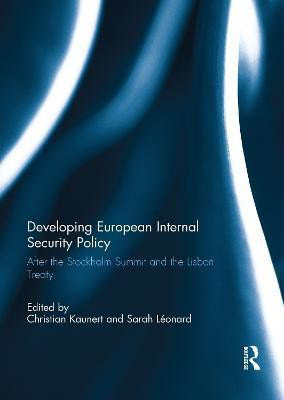Developing European Internal Security Policy(English, Paperback, unknown)
Quick Overview
Product Price Comparison
The European Union (EU) is making strong inroads into areas of security traditionally reserved to states, especially into internal security, or Justice and Home Affairs. The Area of Freedom, Security and Justice (AFSJ), as it has been renamed in the Amsterdam Treaty, has seen significant policy developments since the late 1990s. In fact, there has been no other example of a policy-making area making its way so quickly and comprehensively to the centre of the treaties and to the top of the EU's policy-making agenda. After major treaty revisions in Maastricht, Amsterdam, Nice, and, finally the Lisbon Treaty, which entered into force on 1 December 2009, as well as an increased political impetus through the European Council Summits in Tampere (1999), the Hague (2004), and Stockholm (2009), the area appears as one of the most promising policy fields for integration in the EU in the foreseeable future. This process has deepened even more significantly after the terrorist attacks on 11 September 2001 in the United States, on 11 March 2004 in Madrid, and on 7 July 2005 in London. This book is the first to analyse these hugely topical developments in European internal security at both the treaty and policy levels, as well as its implementation at the national level, from various disciplinary perspectives (political science, law, criminology, etc). This book was published as a special edition of European Security.


